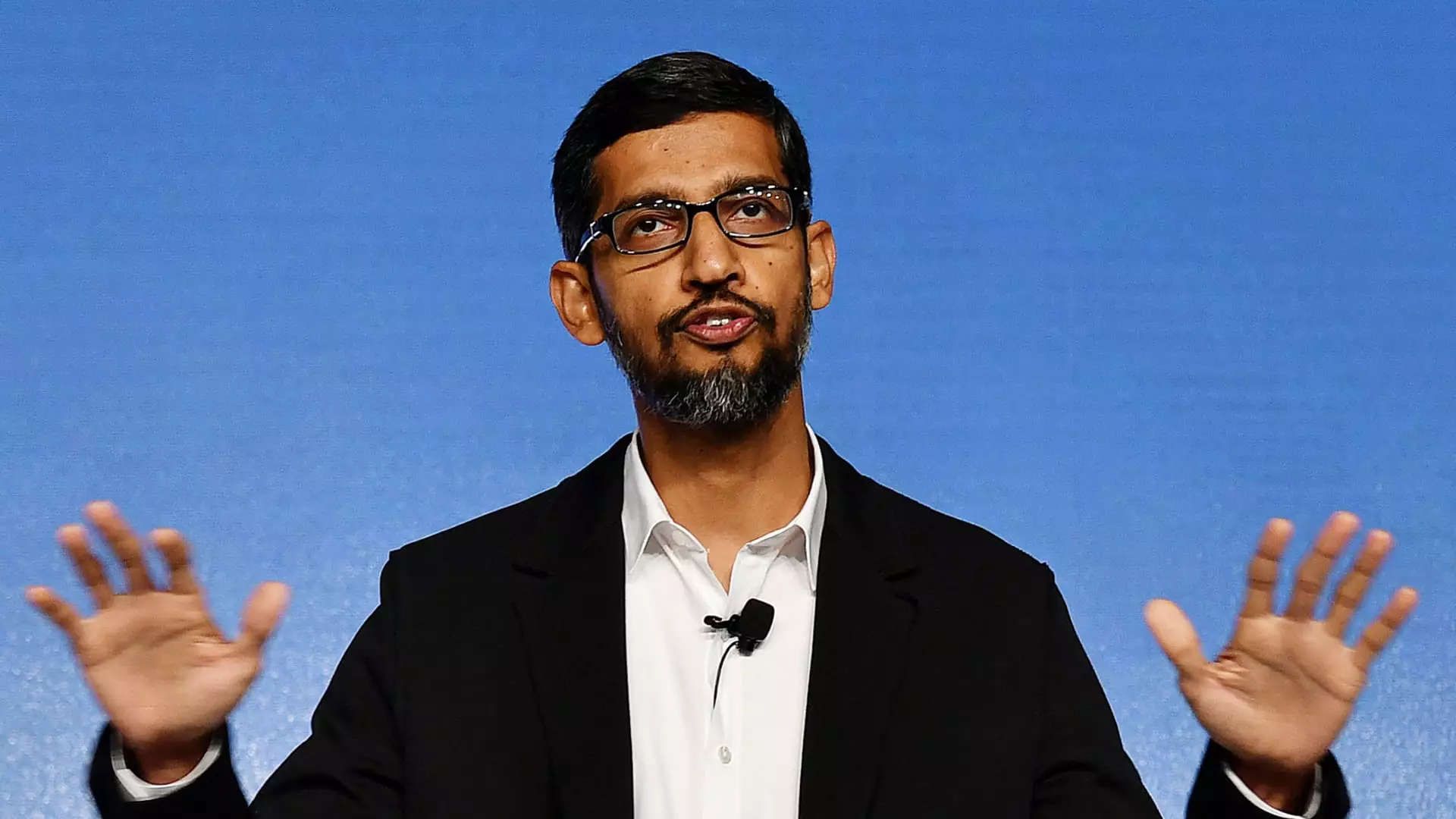In the lead-up to pivotal U.S. elections, Google has undertaken a noteworthy initiative to control political discussions within its corporate environment. Recent actions taken by the tech giant reflect a broader trend in corporate governance where companies navigate the complexities of political expression among their employees. Internal communications have indicated that Google executives are warning employees to eschew political sentiments from prominent forums, aiming to foster a more civil workplace atmosphere. This move raises intriguing questions about the appropriate balance between personal expression and professional decorum in an era marked by divisive political landscapes.
The internal forum, Memegen, has become a focal point for both creativity and contention among Google employees. Despite well-publicized advisories against engaging in political discourse, some employees have resisted this directive, continuing to share election-themed memes that implicitly critique the company’s policies. This tug-of-war between management’s efforts to maintain corporate neutrality and employees’ desire for self-expression exemplifies the challenges that come with curbing political speech in the workplace.
Google’s CEO, Sundar Pichai, recently reinforced the company’s position through a memo articulating the organization’s responsibility to deliver “high-quality and reliable information.” His call to action underscores the intent behind Google’s approach: to remain a trustworthy hub for users of diverse backgrounds. The emphasis on providing a neutral platform speaks to the company’s broader mission, yet it reflects a nuanced dilemma—how can organizations genuinely cultivate a space for free expression while maintaining an image of impartiality?
Moreover, Pichai’s engagement in the political arena has not gone unnoticed. With some political figures seeking dialogues with him, the intersection of leadership, corporate culture, and external political influences becomes even more pronounced. The dynamics within this space necessitate deliberation; if key executives are receiving political outreach, can employees’ voices—especially in opposition to corporate policies—be comfortably integrated into the same discourse?
Since the implementation of a policy in 2019 that cautioned against incitement through demeaning political conversations, Google has been navigating the delicate intricacies of maintaining a harmonious workplace culture while addressing employee grievances. Critics of these policies argue that the attempts to centralize conversation and limit expression could be perceived as stifling free speech. This tension is further exacerbated by recent expansions to their content moderation frameworks, which push employees toward self-censorship.
In essence, the changes signal a significant cultural shift within Google. They are reminiscent of a broader pattern observed across various tech sectors, highlighting a corporate philosophy that increasingly favors standardized dialogue over individual expression. As backlash emerges from dissenting employees, the question remains—what does this mean for a company that prides itself on innovation and inclusivity?
The tech giant’s internal dissent has been particularly vocal around issues like Project Nimbus—a controversial partnership between Google and Amazon that provides cloud services to the Israeli government. Following intense discussions regarding this contract, Google opted to shut down a platform temporarily to mitigate the rising tensions. Such actions reveal the dilemmas faced by the company as it strives to protect its business interests while respecting the rights of employees to express their opinions on contentious issues.
In 2019, a settlement mandated by the U.S. National Labor Board emphasized employees’ rights to vocalize workplace conditions, setting a precedent for future corporate conduct. However, Google’s responses have led to additional scrutiny regarding their commitment to uphold these rights while also adhering to newly established guidelines that limit political discourse. The challenge lies in balancing the assertion of employee voices with corporate stability—a task made increasingly complex by the personal and political stakes involved.
To combat what they describe as rampant political debate within their forums, Google has turned to Artificial Intelligence (AI) to assist in moderating internal discussions. This advancement, while innovative, raises ethical concerns about automated oversight over human expression. The integration of AI into workplace communication practices ushers in complex questions regarding what constitutes acceptable speech and who holds the authority to dictate those standards.
As Google’s approach cultivates stronger moderation frameworks, employees can be left feeling voiceless. New guidelines restricting political expression on Memegen stand as markers of this struggle. Users have reported their posts being removed, even when they seem innocuous or supportive, indicating a potential overreach in enforcement. In fostering an environment perceived as punitive towards political discourse, Google runs the risk of alienating its workforce and stifering the very creativity that has fueled its growth.
Google’s current maneuvering presents a nuanced case study on corporate governance. The balance between promoting civil discourse while protecting employees’ rights to political expression is fraught with challenges. The desire for neutrality may come at the cost of silencing diverse perspectives, raising existential questions about culture, voice, and identity within one of the world’s leading tech enterprises.

